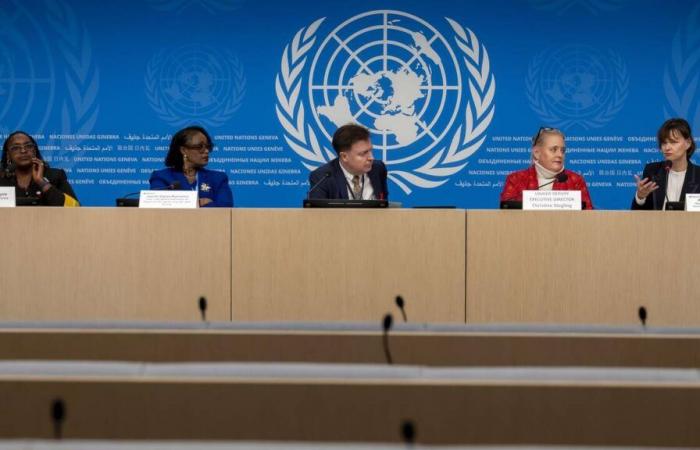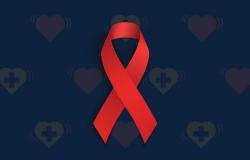Seventy percent of young people aged 15 to 19 infected with the AIDS virus in 2023 were girls, a rate which reaches 90% in sub-Saharan Africa and could call into question recent gains against the disease, indicated Friday ‘UNICEF. Even though the number of children and adolescents infected with the human immunodeficiency virus (HIV) has been declining globally for a decade, adolescent girls still struggle to access prevention and support measures. adequate, underlines the United Nations children’s agency.
They therefore remain proportionally much more affected than boys, particularly in sub-Saharan Africa, and without urgent corrective action, the progress made in recent years against AIDS could prove in vain, warns the organization before World Day against AIDS, December 1st.
More than 90,000 children and adolescents dead
Globally, 96,000 girls and 41,000 boys aged 15 to 19 were infected with AIDS in 2023, reports UNICEF. There were 250,000 new HIV infections in 2023 in the 0-19 age group, bringing the number of children and adolescents with the disease to 2.4 million worldwide. “Many countries have made enormous progress towards the eradication of AIDS,” noted Anurita Bains, UNICEF deputy director for HIV/AIDS.
“Yet children and adolescents do not fully reap the benefits of improved access to medicines and prevention services,” she observes. “Priority must be given to children living with HIV when investing in resources and efforts to improve treatment for all, including the development of innovative testing technologies,” he added. She.
While 77% of adults with HIV have access to antiretroviral therapy, this is the case for only 57% of children aged 0 to 14, and 65% of adolescents aged 15 to 19, according to Unicef . Last year, more than 90,000 children and adolescents died from AIDS-related illnesses, 73% of them under the age of 10. Children aged 0 to 14 represent only 3% of people with AIDS, but 12% of HIV-related deaths in 2023.






